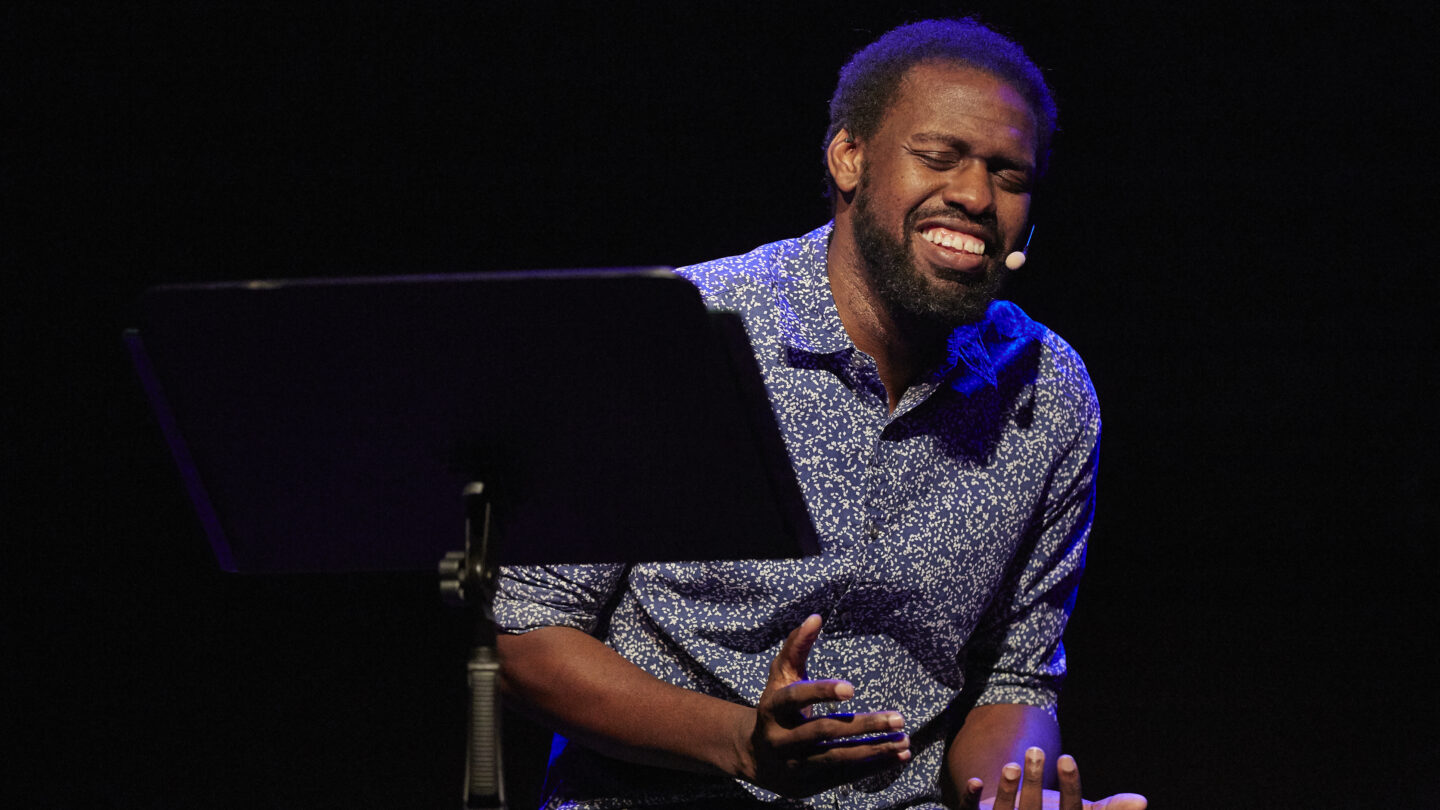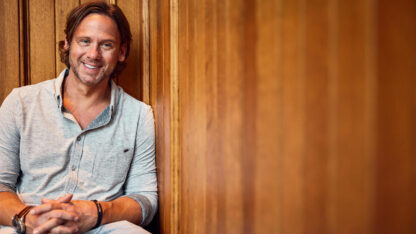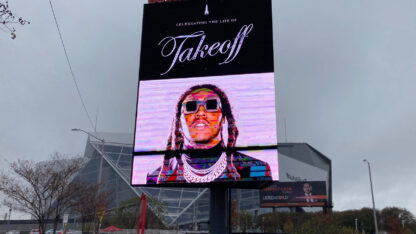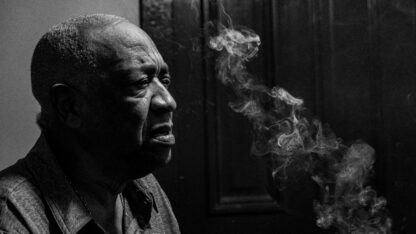Anthony Russell is a non-traditional singer performing traditional genres of music. Following the likes of artists like Sidor Belarsky and Paul Robeson, he’s an African-American bass singer, composer, and arranger specializing in Yiddish language, music and style. His recording credits include the EP “Convergence,” released in 2018, and the album “Cosmopolitan,” released in August of this year. Anthony Russell will perform a program titled “Tsvey Brider” (or “Two Brothers”) with San Francisco musician Dmitri Gaskin at Temple Beth Tikvah on Saturday, Dec. 10, and he joined “City Lights” host Lois Reitzes via Zoom to talk more about his artistry and upcoming performance.
Interview highlights:
A young Russell, becoming enchanted with music through classic films:
“[My family] happened to move into a house where the previous owner had a number of tapes of various movies that I guess he had illegally recorded at that particular point, and one of those tapes was of the movie ‘Amadeus.’ I became obsessed with this movie. I used to watch it several times every day,” recounted Russell. “I like to think of that as being the beginning of my interest in opera and in classical music, and that was around when I was 12. So basically, I had this great interest, I listened widely, but at that particular point, I wasn’t an opera singer. I was just interested in operas as a subject, and it wasn’t until I was 17 and I’d been taking piano for a few years that I decided I would try my hand at singing, and within a year of taking singing lessons, I won my very first competition.”
“[‘Fiddler on the Roof’] is another movie that I was just very, very obsessed with and that I watched over and over and over again. I mean, it’s an amazing musical. I think it does an amazing job of depicting a very particular set of circumstances that happen to a very particular group of people in a very particular time and place, but it still manages to feel like a universal story,” said Russell. “I pretty much know it off the top of my head. I could sit down and give you a one-man show of ‘Fiddler on the Roof.'”
On the influence of opera singer Paul Robeson:
“He’s had an immense influence on my career and on my identity as a Black, classically-oriented singer. I actually explored a lot of this in a project that I did earlier this year called ‘My Own Personal Robeson,’ and in that project, which took place basically virtually, I explored the meaning of Paul Robeson to me not only as a classical singer but also as a politically engaged person. I mean, I think oftentimes that’s something that a lot of people forget – is that he was immensely politically engaged and was always fighting for what he thought was right and how there was a great amount of continuity between his identity as a politically engaged person and his identity as a singer. In many ways, they were one.”
Russell continued, “What I wanted to do was explore who Paul Robeson was to me, had been to me, and could be to me as somebody who is interested in continuing to develop a political identity, especially in view of the recent uprisings around Black Lives Matter and the murder of George Floyd, and countless other unarmed Black people. So what Paul Robson allowed me to do was to discuss how a Black singer and specifically a Black, bass, classically-oriented singer could develop a political identity as well as an identity as a performer.”
Embracing Black American spirituals and Jewish music traditions in “Convergence”:
“I think as a Black classical singer, spirituals are looked on as being a natural part of your repertoire. I mean, back in the day, a Black classical singer would get up and sing an hour’s worth of very high-toned European art music, and at the very end of it, would be expected to perform spirituals, kind of as a hallmark of the African-American classical singer,” said Russell. “There was something in me that, I think, in a way wanted to shun that because it was expected of me… I wanted to establish for myself a career that was based on my own choices, as opposed to one that was developed along the lines of what I was supposed to do.”
He said, “Even now, I’m a performer of Yiddish music, which I think is a relatively unforeseen outcome for the Black classical singer … When I started learning Yiddish art songs and specifically Yiddish folk songs, the thing that it reminded me most of, of course, was of spirituals. So what that required of me was an investigation, both internal and external, of what my relationship was to this music, and what it meant to me, and what it could mean to me… Working on ‘Convergence’ really allowed me to find a way to perform this music, specifically spirituals, in a way that made sense to me and that didn’t feel like an obligation, but that felt like an ability to really inhabit myself.”
Anthony Russell will perform with Dmitri Gaskin at Temple Beth Tikvah in Roswell on Dec. 10. Tickets and more information are available at www.bethtikvah.com/event/tzvey-brider.html.









